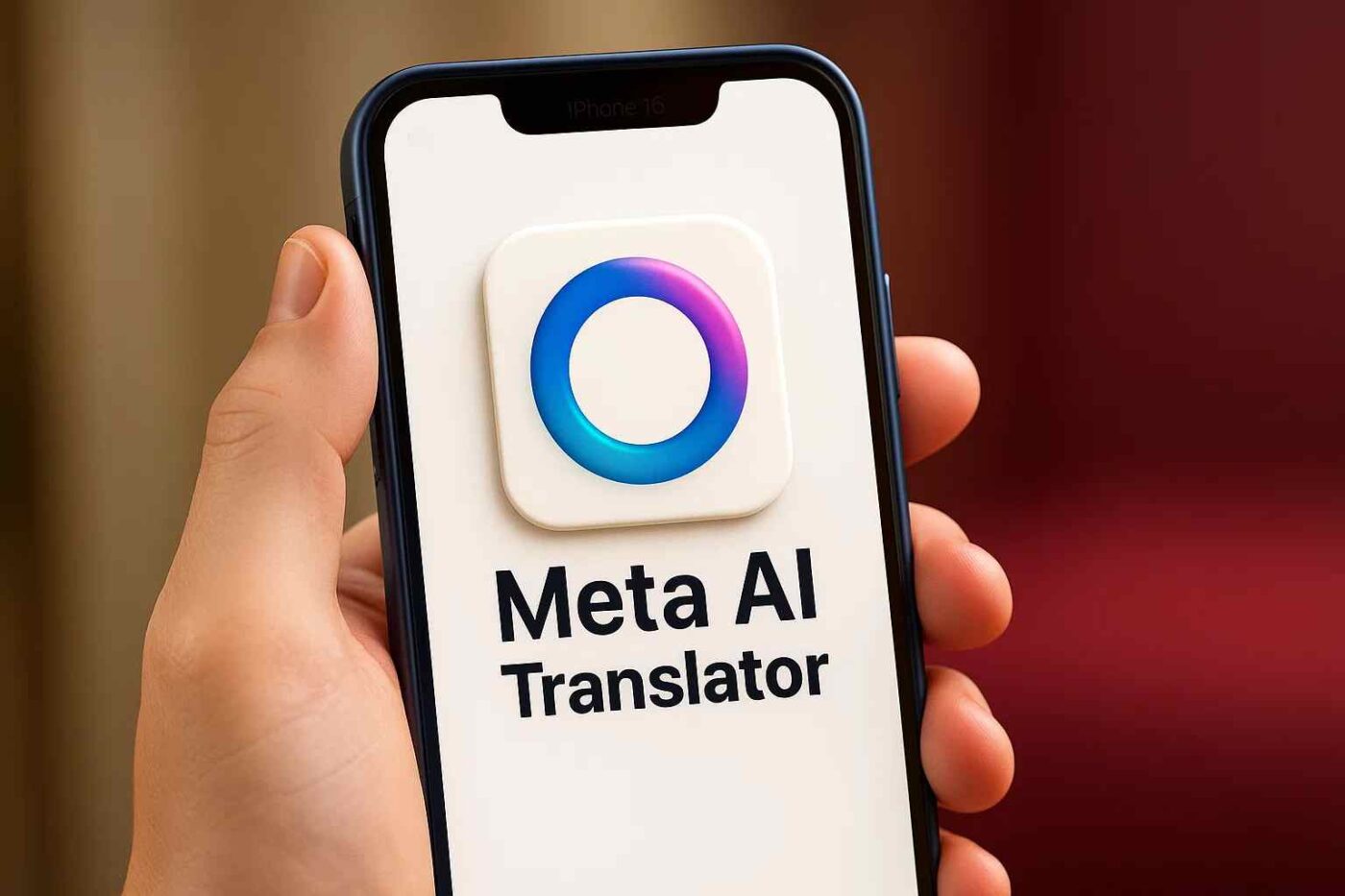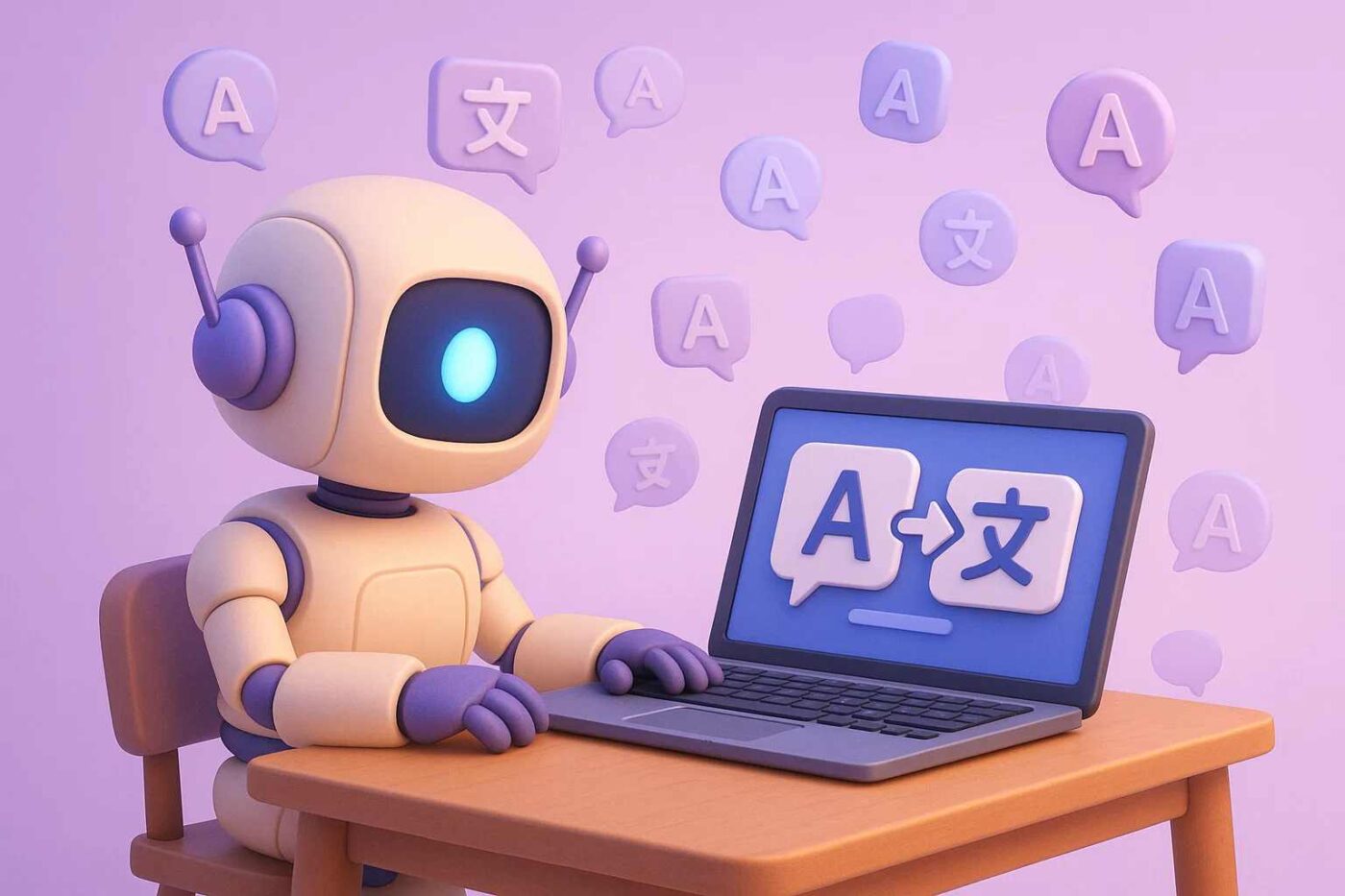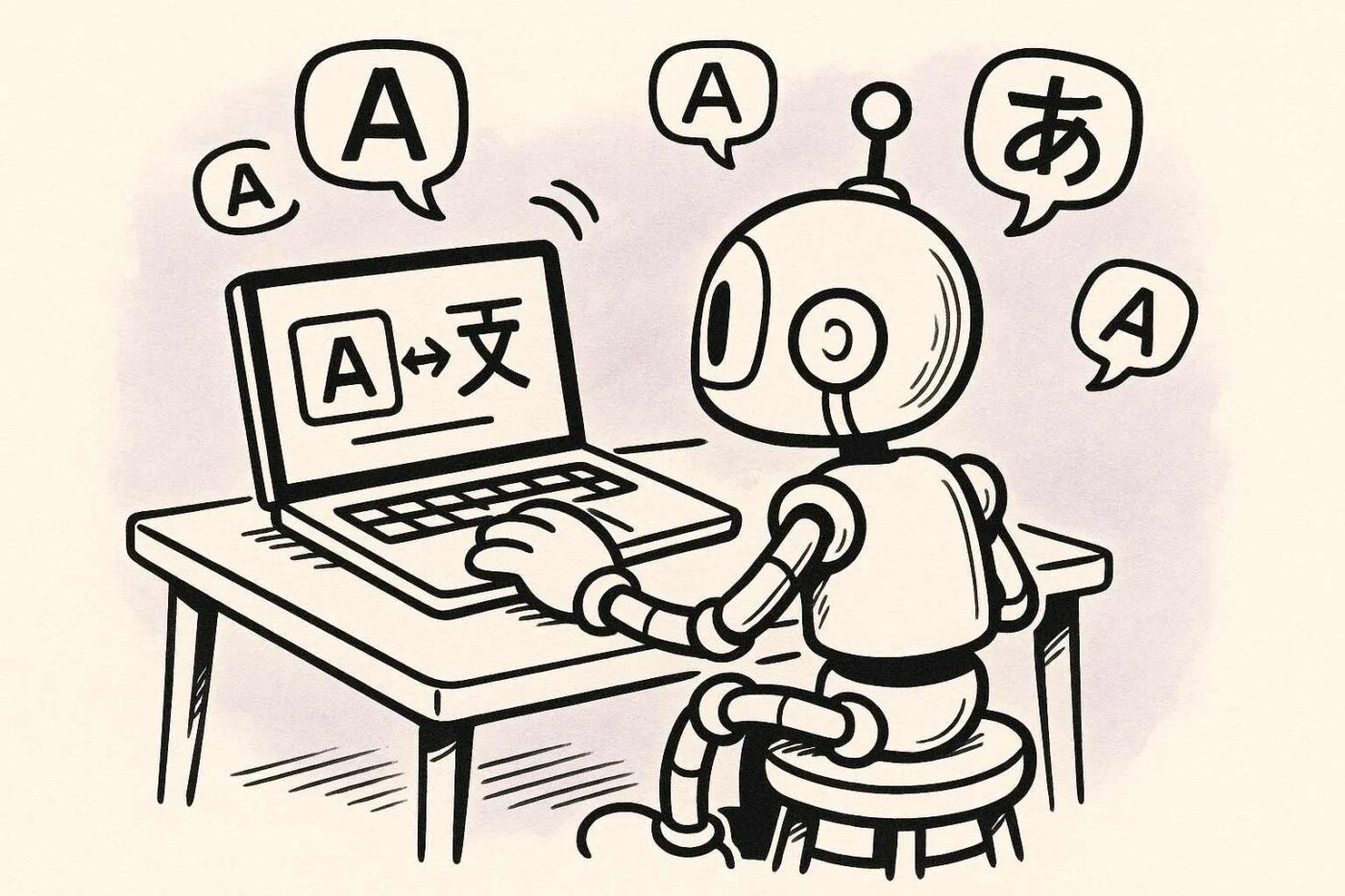Is ChatGPT good at translation? ChatGPT Review
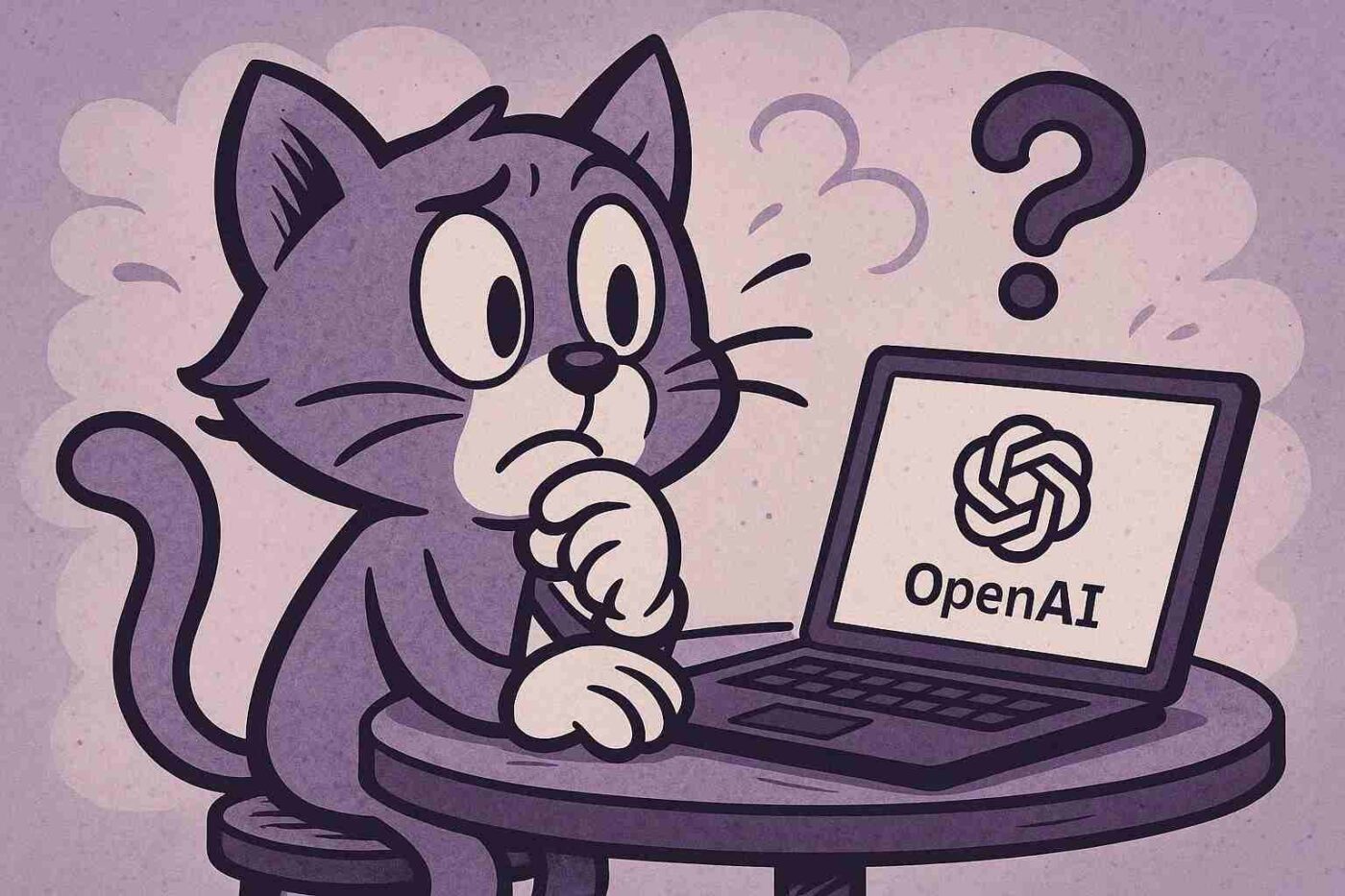
I’ve used ChatGPT (and other models) to translate 500,000+ products in the last two years, and I can answer the question: “Is ChatGPT good at translation”.
If you’re trying to figure out if ChatGPT is good enough to use it for translating product descriptions, papers, legal documents, and any kind of text that matters… you’re in the right place.
If you’re looking for the best ai translation services, here’s the link.
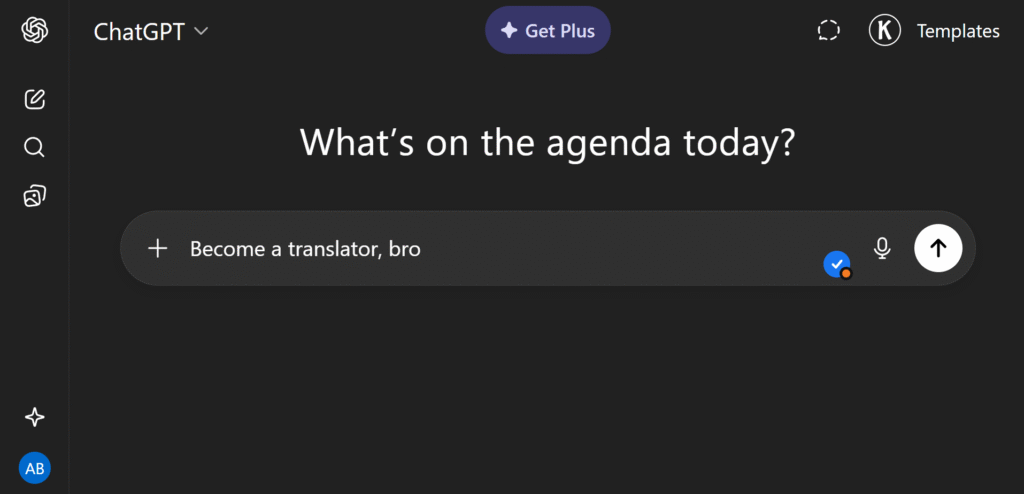
Does ChatGPT work as a translator?
Yes! ChatGPT works as a translator. It is, in fact, one of the best AI translation tools on the market.
Another free tool you might want to look into is the Meta AI Translator.
However, ChatGPT faces some translation limitations.
Old-school machine translation software like Google Translate or DeepL work differently.
ChatGPT is an LLM (large language model) and the way it functions is much more complex. Which is good and bad at the same time… We need to talk about:
1. ChatGPT Translation Accuracy
3. ChatGPT Translation Reliability
Let’s jump right in!
ChatGPT Translation Accuracy
ChatGPT’s accuracy varies greatly. Some people say it’s amazing, and other people run from it at all costs.
That’s because no everybody uses it in the same way.
Unlike old-school translation tools, ChatGPT and LLMs (even though they are not sentient) they are somewhat context aware when you ask them to process a piece of text.
Whereas, Neural Machine Translation software will just translate the text as it is, since its only purpose is to translate.
LLMs like GPT were built to process large amounts of text in a way that it looks human.
No matter if you ask it to give you a cake recipe, write code, or to translate your text.
We can say it “understands” the context thanks to this architecture… but because of it, it is greatly inconsistent.
If you ask ChatGPT to translate a sentence 100 times, odds are you will get different results.
LLMs are non-deterministic.
If you give it a long enough piece of text, the essence of it will always be there, even though it will look different and it will contain different works.
The fewer words you give it for translation, the worse the translation quality will be.
Let’s take the word “hood” for example.
You tell ChatGPT to translate it. What is it going to output?
The neighborhood equivalent? Is it going to talk about clothes? Or cars?
But if you tell it: “It’s cold outside, so I have to put on my hood.”…
The translation will be much more accurate, and even if it’s not word-for-word the same, it will be much better than Google Translate.
However, if you need word-for-word translation, Google Translation might be the better AI language translator.
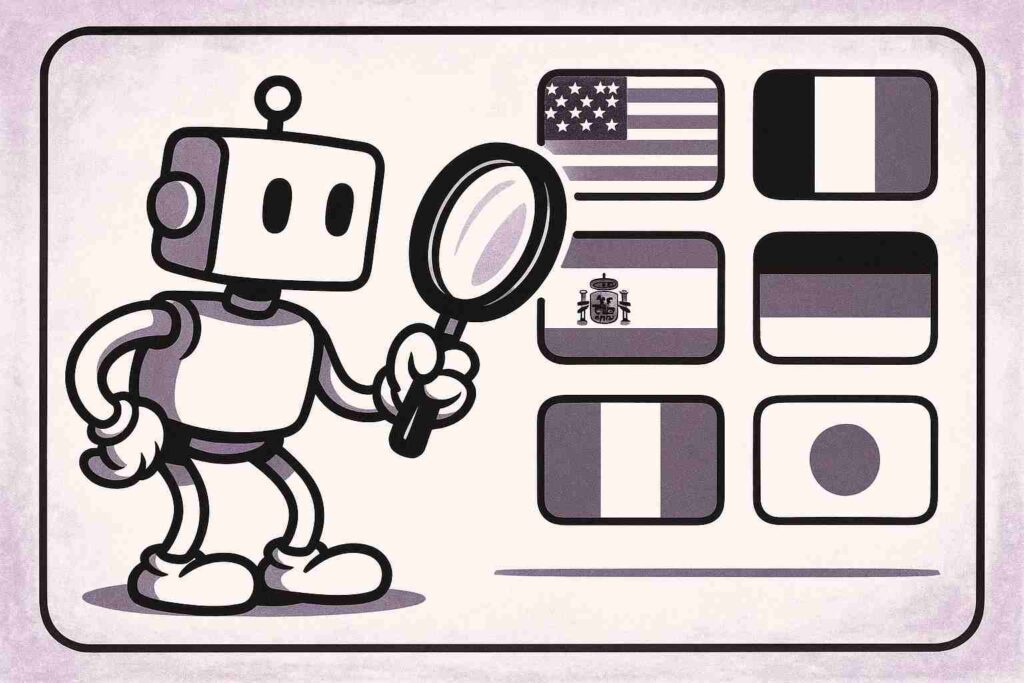
ChatGPT Language Detection
As I previously said, I translated over 500,000 products with AI, and I want to say this from the start…
ChatGPT is terrible at detecting languages.
If you give it a text, and ask it to translate it without giving it the original language, it might give terrible results.
It’s always better to specify the original language.
Another downside of ChatGPT when it comes to translation is the fact that it gives unreliable results with languages that don’t use the Latin alphabet.
ChatGPT Translation Reliability
It’s translation reliability depends a lot on what your goals are.
Do you want high-fidelity translations that provide direct correspondence on a word-by-word basis between the original and the translated language?
Or do you want the meaning to be preserved in a format that’s easy to understand?
If you’re looking for the latter… yes, ChatGPT can be reliable.
I said “it can be” because it’s still non-deterministic.
If you want consistently reliable AI translation, you will need to use an AI translation engine like Ovesio that uses multiple translation models, and then an AI Inspector for automatic QA.
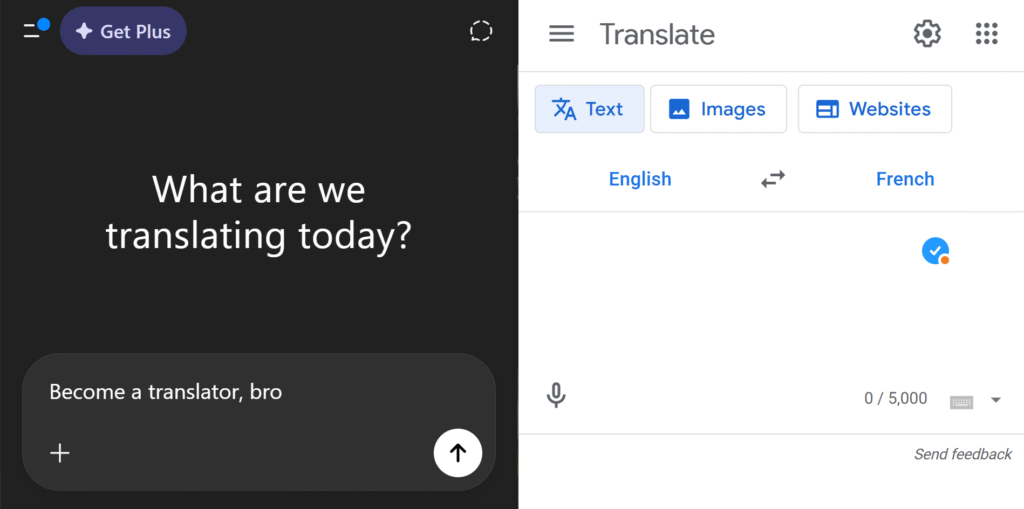
Is ChatGPT a better translator than Google Translate?
Yes. ChatGPT is better at translating than Google Translate thanks to its user experience and the fact that it can provide much more than just translation.
You can translate the text, and then ask it to provide the simplest way to say it.
You can ask it what kind of questions you can ask based on that information and many more.
But… for E-Commerce, Google Translate is slightly better.
If we talk about automation, you will use both of them through their API, so GPT uses it’s edge with the UX.
Speaking of automation, the best E-Commerce AI translation tool is Ovesio, and it has a dope API that allows you to automate translations in over 29 languages.
How good is ChatGPT at translating documents?
Yes, ChatGPT is good at translating documents when the goal is understanding the document… but it must never be used to translated legal documents or contracts.
At least, not unsupervised because it sometimes produces garbage, and in a legal setting… it can put you in a lot of trouble. Legal trouble.
Conclusion
ChatGPT is different from “old-school” translation tools like Google Translate and DeepL… but it is still quite powerful, if used correctly.
You can either use it in the ChatGPT interface, through the API, or (best way) through a multi-integrator like Ovesio, in which you can use other AI translation models like DeepL, Gemini, Microsoft Translator for the price of one subscription.
Ovesio specifically has a complete infrastructure which allows you to do more stuff and much faster than singular APIs.
If you want to learn how to use ai translation services, click here.
Maybe you might ask yourself: Is Meta AI translation good?



